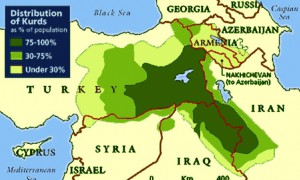
Do Special Ops Forces Have Too Much Autonomy?
By ANDREW ROSENTHALNew York Times, 15 February 2012
Special Operations forces have long enjoyed an elite position in the United States military, and achieved something like folk-hero status when Navy Seals killed Osama bin Laden in Pakistan last May. The admiration is well-deserved, but an article in Monday’s Times drew attention to the power they’ve accrued of late, and raised questions about just how much independence they should have.
Carol Giacomo, who covers foreign affairs for the editorial board, says that the Obama administration has increasingly made Special Operations Forces its military tool of choice to handle threats overseas. It plans to rely on them even more widely as it draws down conventional troops from Afghanistan.
Eventually, Special Ops Forces will make up the bulk of any residual force left in Afghanistan, hunting down militants and helping train Afghan security forces. Administration and military officials are also talking about using them in regions where they have not operated in large numbers for the past decade, including Asia (the Philippines, specifically), Africa and Latin America.
The article on the front page of Monday’s Times reported that the top Special Operations officer, Adm. William H. McRaven, is now seeking authority to move his forces faster and outside of normal Pentagon deployment channels. The proposal has not been fully explained publicly but The Times reported that it would give him more autonomy to position his forces and their equipment where intelligence and global events indicate they are most needed.
Among congressional, staff—who have not yet been briefed on the proposal—there are questions about how such new authority might affect operations. “What problem are they trying to solve?” one aide asked. A Pentagon official, who spoke on background, insisted that Admiral McRaven “is not trying to fix something that’s broken. The proposal is anticipating what the future will be for these guys and getting ahead of it.”
The Pentagon official stressed that Admiral McRaven “is not looking for complete autonomy unanswerable to anybody” and that Special Operations Forces would still be ordered on specific missions by the regional four-star commander. But one concern is that the new plan would cut out the State Department. In the past, some ambassadors in crisis zones have opposed increased deployments of Special Operations teams, and they have demanded assurances that diplomatic chiefs of missions will be fully involved in their plans and missions.
The “global war on terror” has been used to justify a lot of things. But not everything changed on Sept. 11, 2001. Civilian control of the military is one thing that did not change. I can’t imagine a circumstance under which it should.











